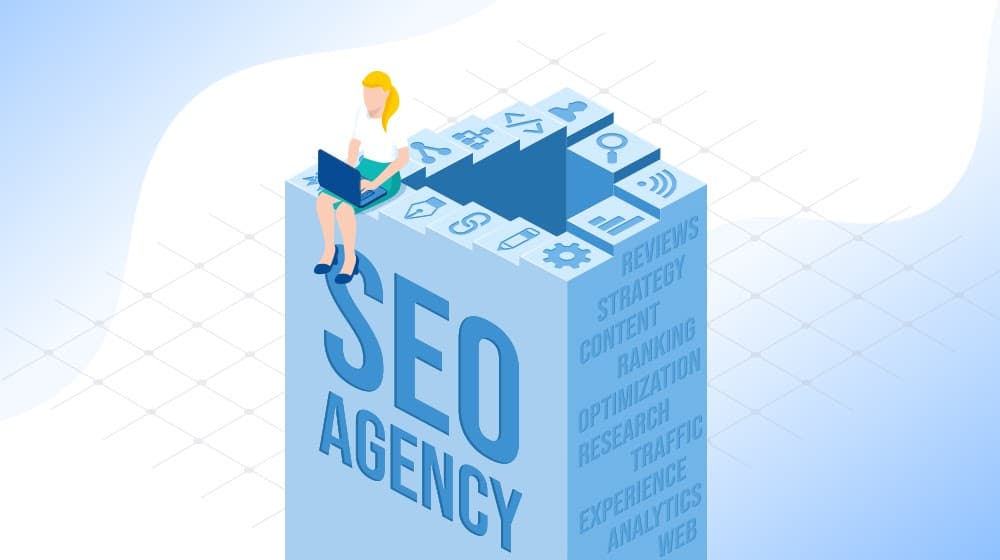Quick Audit Checklist Before Switching to a Different SEO

Generally speaking, when you sign a B2B contract with a service provider for something like SEO, you hope that it's going to be a lasting relationship. Unfortunately, that doesn't always work out. Maybe you're unsatisfied with their performance. Maybe their communication has dropped, and you have a hard time reaching them. Maybe your business has grown, and the scope of their work can't keep up.
Whatever the case, you will, sooner or later, need to change agencies.
Before you jump ship, it's important to do a quick audit and make sure you're going to be able to transition smoothly. I've run into a number of businesses that have been distressingly locked into their previous agencies, and it ends up being a nightmare to migrate.
To avoid that stress and hassle, here's what you should audit and check beforehand.
The Purpose of This Guide
Before I dig into the actual checklist, I want to talk a little about the purpose of this guide and why I've put it together.
If you search for SEO migration checklists and auditing, you're going to find two things: technical and SEO audit guides and technical migration audits. These are full of good advice, but all of that advice is things like:
- Audit your content and drop bad pages
- Take the opportunity to implement Schema
- Audit your site redirects
That's not what I'm discussing today.
The problem with these kinds of guides is that they assume that you're willing to do a bunch of work to improve your site before, during, and for the migration. That's fine if you're, say, migrating a site you own to another host or another CMS and want to get everything right.
The number of businesses actually doing this is pretty small, though. I'm specifically directing this guide at businesses who are outsourcing their SEO, content marketing, and even web hosting to an SEO agency.

SEO agencies are usually aware that clients come and go. The good ones have a smooth onboarding and offboarding process. The bad ones, though… resist.
- I've seen businesses decide they want to switch agencies, only to learn their CMS was bespoke, and they need to essentially reconstruct their entire site from the ground up.
- I've seen businesses migrate only to be blindsided by a clause in their contract that said the content created for them by the agency was the property of the agency.
- I've seen particularly scummy "agencies" throw a fit and sabotage sites on the way out, or withhold the keys to their clients hosting, domain, website files, and so on. One of my clients found out in their fine print that they didn't even own their website; their agency was leasing it to them in their monthly fee. Yikes.
When you choose your marketing agency in the first place, ideally, you'll know how to spot and avoid the scams, but not everyone knows how to do that when they start out. I'm not here to shame victims for being scammed; I want to help you get to a good place afterward.
My goal with this guide is to make this entire process smooth and avoid these problems whenever possible or deal with them if they're unavoidable. You can certainly take over SEO responsibilities and follow technical audit checklists as much as you like, but that's not the purpose of the guide I'm writing here.
Now, let's get started with things to check.
Contract Review
Before you even bring up the concept of migrating or canceling with your existing agency, dig up the contract you signed and give it a read. There are a few things you're going to want to look for.

Good contracts will either not have these or will be clear about them:
- Service lock-in clauses like steep early cancellation fees. A common trap used by bad agencies is a steep fee to cancel early or possibly a demand to pay out the rest of the contract in advance. These are, unfortunately, legal, so they might influence the timing of your migration.
- Automatic renewals of services. These often go hand-in-hand with early cancellation fees; they'll try to get you to auto-pay and auto-renew your contract. If you miss the window for cancellation, you're stuck with either a steep fee or another year of lock-in.
- Asset ownership clauses. Good agencies produce content, create reports, and create assets and hand them over to the company they work for. Bad agencies retain ownership over assets so that if you cancel, you have to leave them behind.
If you find anything concerning in your contract, you might even consider taking it to a local contract lawyer to see what options you might have. Often, signing a contract, even if it's awful for you, still means you signed it, but some clauses can be unenforceable, illegal, or challengeable in court.
Hosting and Server/File Access
Another thing to check is who owns the web hosting you're using for your website.
For example, if you run your site on WordPress.com, the servers and hosting are all WordPress. Your SEO agency doesn't own it and can't pull the rug out from under you if you cancel.

Often, new companies sign up with marketing agencies who promise to build a website, and that website is hosted on servers the agency is paying for. If you cancel and you haven't properly backed up or migrated your site, it might be removed from their servers without your ability to recover it.
If you don't even have access to your own website's server, files, and database, that's also a potential problem you'll need to circumvent. Sometimes, you can request a backup from your agency. Sometimes, you'll end up stuck and need to recreate your site from scratch.
Domain Registration
Domain registration is also often overlooked. SEO agencies are rarely also domain registrars, but they do often register domains for their clients. You'll want to make sure you have ownership over the domain name, even if the agency registered it.

You'll probably want to transfer ownership of the registration to yourself and manage it yourself rather than send it to a different agency. Domains are generally cheap to keep registered, and you can set it up to renew automatically, so it's not a problem.
Just make sure you know who has ownership and access to your domain registration. You may also need to check to see if you have domain registration privacy protection and if you need to transfer that as well.
SSL Certificate Responsibility
Another often-overlooked element of a website is the secure encryption for traffic. Using HTTPS is a search ranking factor, albeit a small one, but it's also another element that needs managing. Security certificates often cost money and need annual renewals, just like domain names.

Check the certificate authority issuing your SSL certificate and who it's being issued to. You don't want to find your SSL expires and your site sends security errors to users out of nowhere once you migrate.
CMS Ownership and Account Access
This is another area that can be a little tricky. For general-use CMSs like WordPress, Squarespace, Shopify, Joomla, Magento, and the like, they're fairly agnostic. An SEO agency might have the primary account access, and you'd need your own to take over, but the data is all there to be imported back into the same CMS if necessary or just handed over as-is. Migrations with well-known platforms are generally pretty easy.

The problem comes up if the agency is using bespoke CMS software or something walled off. Proprietary data formats, undocumented databases, and other problems can crop up. I've had to fix more than one website for a client that wasn't set up for an easy migration.
Keep in mind if your CMS has the agency's account with admin-level access, you'll want to make sure that gets changed when you migrate.
Agency Tools and Access
Part of what makes a good SEO agency is the suite of tools and features they have for you.

Some of these may be bespoke, in which case you're going to lose what they give you and will need to find a replacement with your new agency. Make a note of these.
Analytics and Third-Party Tool Access
Similarly, your agency might be whitelabeling or volume licensing a bunch of third-party tools for use with their clients. Whether it's access to something like WP Rocket's pro features, analytics that aren't through Google, or access to dashboards and reports from Ahrefs, or whatever, you want to note what you'll lose in the migration. Don't just assume everything you have access to will carry forward.

This is one of the big questions you can ask of a potential new SEO agency: do they have access to the same or comparable tools and reports?
Advertising, Affiliate, and Other Moneymaking Accounts
Most of the time, the ways you're making money on your site are going to be attached to you, not to your SEO agency. Some of them might have built in some kind of management to advertising, though. Whether it's their own access to Google Ads on your behalf or a bespoke ad network like what Beehiiv offers their customers, you might lose access to some of this.

The biggest potential stumbling block is if you run a storefront through the agency and lose access to it. You'll need to be able to export/import or replicate product listings, as well as all of the back-end fulfillment and processing, with your new setup. Ideally, you'll keep it agency-agnostic, so you don't have to go through that whole process again.
Email Account Management, Access, and Forwarding
Another overlooked detail: if you have email set up for your domain, what infrastructure does it run on, and who controls it? The last thing you want to do is lose mailing lists or access to email accounts because the agency is the one controlling them.

This usually isn't a problem, but it's something you'll want to check.
Download Files and Back Up Databases
As you go through all of this, make backups and download copies of everything you can. Log into the server and download a backup of your CMS database. Log into the web host and download images and other assets. Sign into your admin dashboards and download copies of the site infrastructure.

This is all stuff you should, ideally, be doing on a regular basis just to have backups in case anything goes wrong. If you run into access issues, make note of that and consider whether or not you should ask for the access or for an export or if that might set off the company you're migrating away from. Most of the time, it shouldn't be a problem, but I'm trying to be mindful of the worst possibilities throughout this guide.
Download Content and Assets
Downloading your database should give you your content, and downloading your files should give you your assets. Some, though, might not be available or accessible in those forms. If your agency uses a Dropbox for general assets they use for things like ads and watermarking, you might want those. If there are content drafts in Google Docs or another format, those might be useful to have, too.

Be mindful of ownership, as mentioned in the contract section up top. On the off chance you don't technically own your content, continuing to use it as-is can be legally dangerous. You might want to have someone go through and spin copies of the most important content if that's the case.
Download Reports and Analytics
A lot of your analytics and other reports aren't going to disappear when you migrate. You don't lose your Google Analytics history because the agency reading it changed, after all. But, if they were giving you reports from high-priced third-party services that you'll lose, having copies of those reports can be handy.

You can also download reports to have a benchmark of how your site was performing before the migration, so you can look back next quarter or next year and see how the new agency performs.
Download Resources
This last one might be unnecessary, but if there are any specific resources you might want to have or hand over to your new agency, download them as well.

What sorts of resources?
- Keyword lists
- Topic ideas
- Competitive research
These sorts of things are likely going to be redone by your new agency, but having a place to start can be helpful.
Remove Agency Account Access
When you go through the migration process, it might be smooth, or it might not. Either way, when it's all done, go through everything I've outlined and look for secondary accounts and accounts with any sort of access that might not belong to you (or the new agency). This should be considered a security audit, and while you're at it, remove old team members and other accounts that you just don't need anymore.

Hopefully, your migration goes smoothly, and your new company can get you rolling with even better things. If not, though, laying the groundwork helps you make any recovery process as painless as possible.










Comments